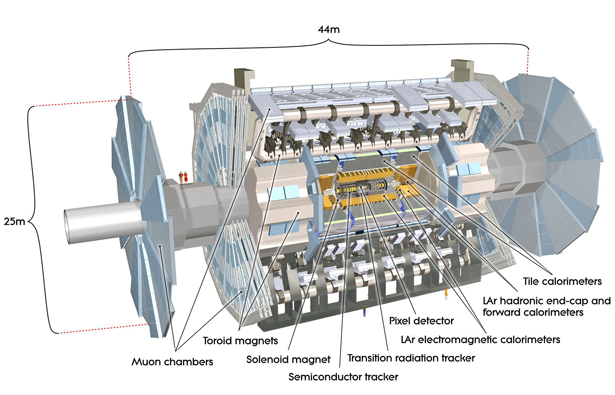the ATLAS Group at LIP
ATLAS is one of the experiments that operates at the CERN Large Hadron Collider (LHC) where proton-proton (p-p) and heavy ion collisions take place at unprecedented high energies and luminosities, opening a new frontier in particle physics. The main goal of the ATLAS experiment for the next years, after the ongoing shutdown of the LHC to increase the beam energy, is the measurement of properties of the Higgs boson that was discovered by the ATLAS and CMS experiments. The general purpose detector structure will also allow the precise measurements of the SM predictions, for example the top quark properties, and the searches for new Physics, such as Supersymmetry, that could explain the abundance of Dark Matter in the Universe.
The Portuguese group contributions to ATLAS concern both Physics studies and detector performance, operation, consolidation and upgrade, with particular emphasis for these last ones during the accelerator shutdown that is taking place allowing large maintenance interventions in the detector.
In terms of Physics studies, we focus on searches for the Higgs boson, searches and measurements with the top quark, the W boson, and the behaviour of jets both in p-p and heavy ion Pb-Pb collisions. Using the know-how in topologies with top quarks, searches for new vector-like quarks were also performed. We are active in the operation and performance studies of the TileCal hadronic calorimeter and High-Level Trigger.
The upgrade program focus on the Trigger system, with the inclusion of the TileCal D cells in the Level 1 muon trigger, speed up of jet trigger algorithms and design of a trigger strategy for the new ATLAS Forward Proton tagging detectors, and in TileCal, with the near term replacement of special scintillators located in a region of high radiation and development of a new High Voltage Distributor System.
The ATLAS Detector

